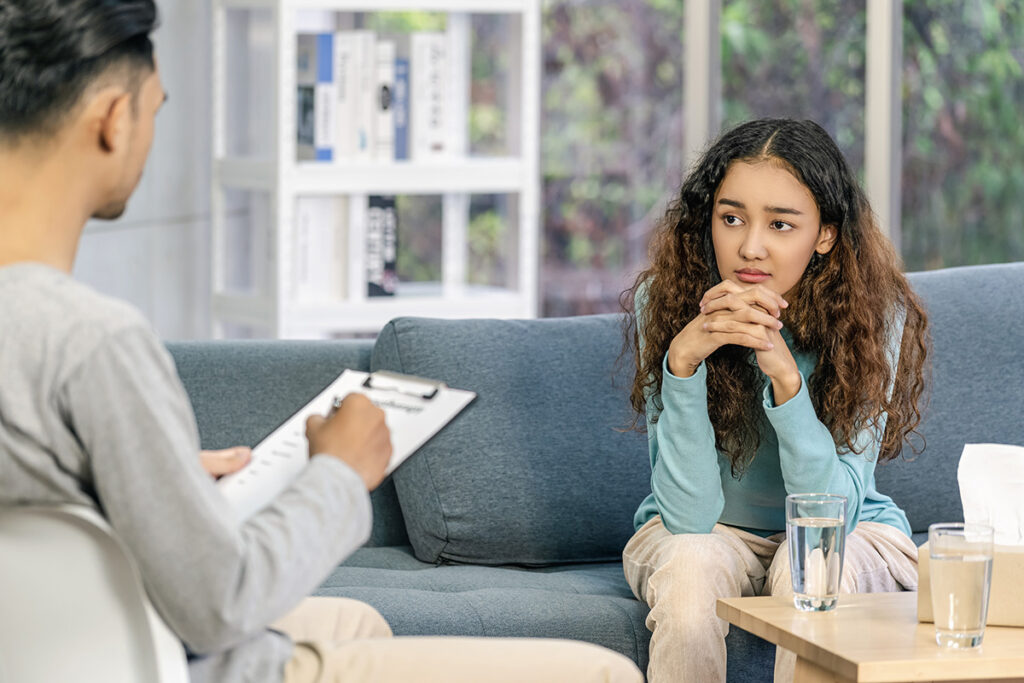It can be difficult to recognize the signs of a co-occurring disorder unless you know what to look for. Many times, people will hide their addiction symptoms from loved ones, making it even more difficult to spot when there is a problem.
Zelus Recovery is a fully accredited addiction treatment center that welcomes people who are living with both an addiction and a mental health condition. Our team is familiar with the signs of a dual diagnosis disorder. They will evaluate your condition to determine which therapies will work best for you. Our programs include cognitive-behavioral therapy, holistic therapies, and medication-assisted treatments to create a whole-person recovery experience.
If you would like to enroll in our dual diagnosis treatment program, call 208.518.0797 today.
What Are the Signs of a Co-Occurring Disorder?
A co-occurring disorder, sometimes called a dual diagnosis disorder, is when someone develops a substance use disorder in addition to having depression, generalized anxiety disorder, post-traumatic stress disorder (PTSD,) or bipolar disorder. This is a dangerous situation where one disorder fuels the other.
In many cases, a person may not understand the reasons behind their addiction. They are unaware that their depressive or anxiety symptoms are causing them to self-medicate.
Here are some of the signs of a co-occurring disorder:
- Changes in their behavior or emotional state
- Withdrawing from friends and family
- Engaging in risky behavior that they would not normally do
- Experiencing severe withdrawals and cravings if they try to stop
- Having trouble maintaining focus and concentration
- Suicidal thoughts and fantasies
At Zelus Recovery, our co-occurring disorder treatment program can treat both conditions simultaneously. During your initial consultation, we will go over your symptoms of co-occurring disorders and develop a holistic approach to treating the addiction and the underlying disorder behind it.
Treating the Symptoms of Co-Occurring Disorders
Treating dual diagnosis symptoms is possible when you enroll in a treatment program that understands the physical and psychological aspects of the disorder. If you are researching treating the symptoms of co-occurring disorders, here is what you can expect after enrolling.
Cognitive-Behavioral Therapy
Cognitive-behavioral therapy (CBT) is one of the best ways to treat co-occurring conditions. It supports the full recovery of patients by addressing the reasons behind the addiction and teaching you healthy coping mechanisms to manage symptoms and triggers. Therapists will dive deep to better understand the reasons for the addiction in private therapy. During group sessions, you will practice coping skills with your peers until you feel comfortable using them in real-world situations.
Other types of behavioral therapy that can treat co-occurring disorders include:
- Dialectical behavior therapy (DBT)
- Acceptance and commitment therapy (ACT)
- Motivational interviewing (MI)
- Eye movement desensitization and reprocessing (EMDR)
Each person’s path is unique and may require different types of therapy. Our team at Zelus Recovery will work with you to develop a personalized treatment plan that addresses your specific needs.
Holistic Therapy
Holistic therapies address the mind, body, and spirit while in recovery. Co-occurring disorders can be very detrimental to your life, and you may need to learn life skills that can help you during your recovery. They include yoga and meditation therapy, and other essential life skills.
Medication-Assisted Treatment
Medication can be helpful for those going through addiction withdrawals, cravings, and other disruptive symptoms. Medical staff will administer medications based on your individual plan. They will monitor you for any adverse side effects and make adjustments to the dosage as necessary. Over time, your symptoms will fade, and staff will begin tapering you off the medication until it is no longer needed.
Join Our Whole-Person Dual Diagnosis Treatment Program Today
If you recognize any of the signs of a co-occurring disorder in a friend or loved one, call 208.518.0797 today or reach out using the online form to learn more about our addiction treatment programs.





